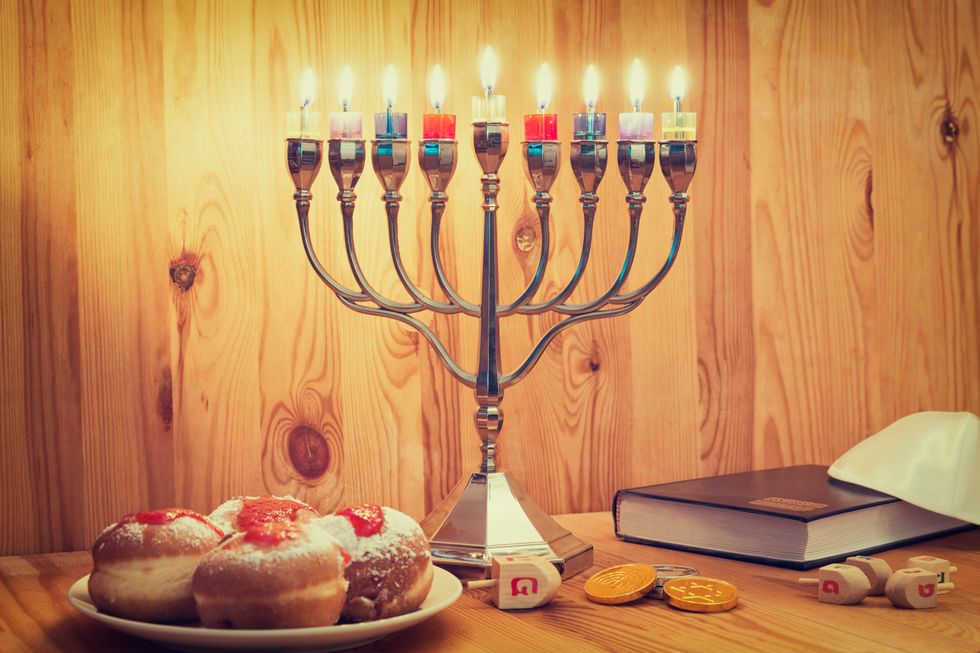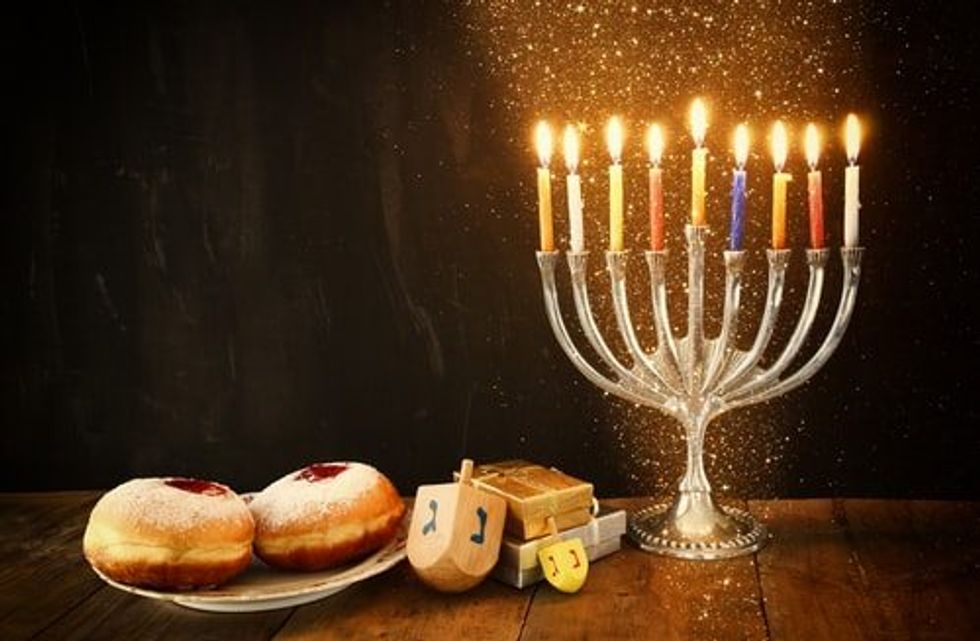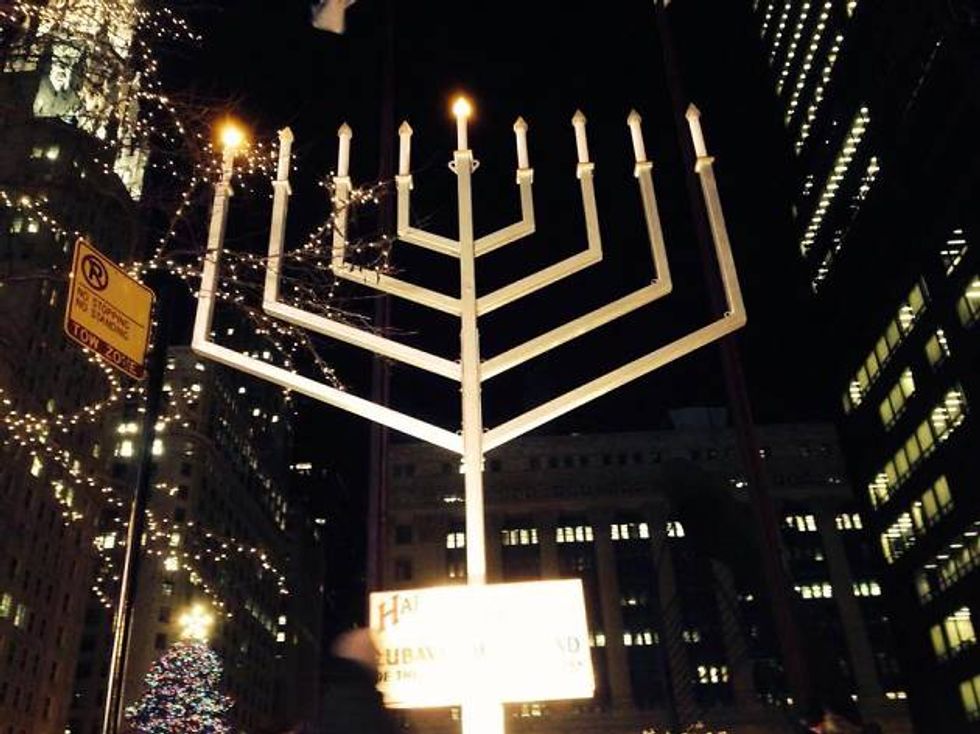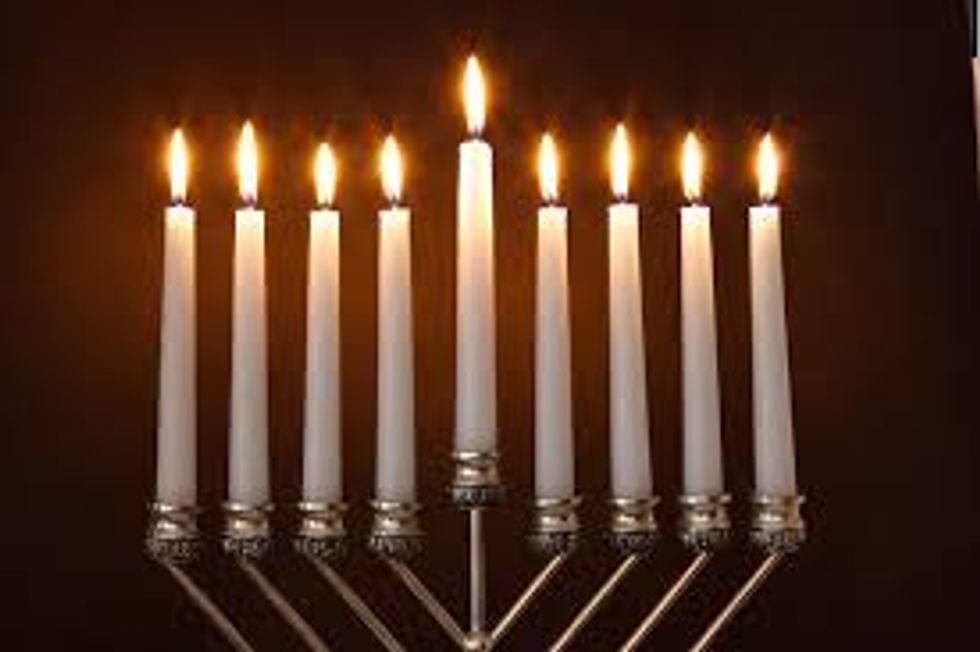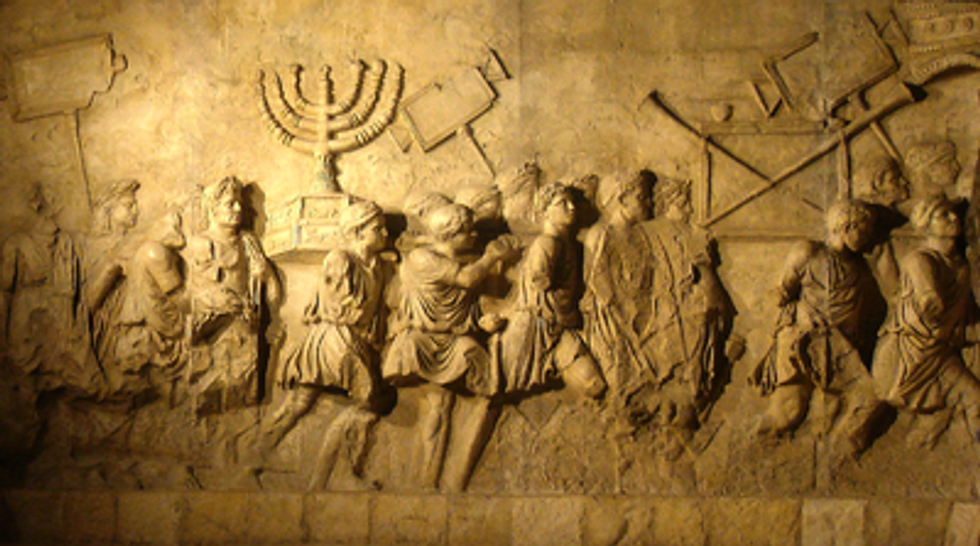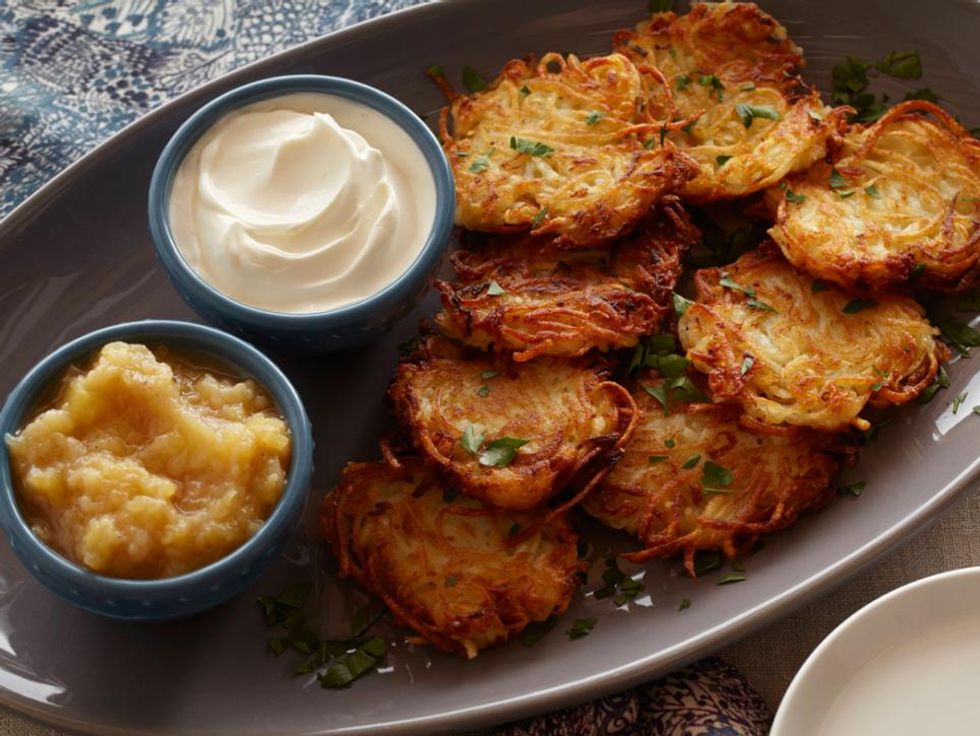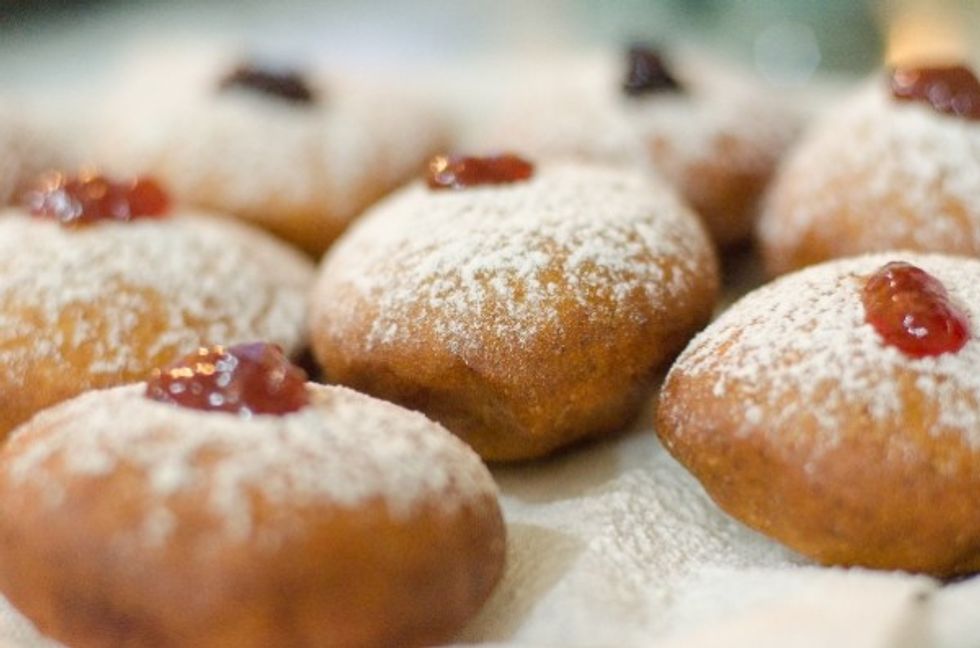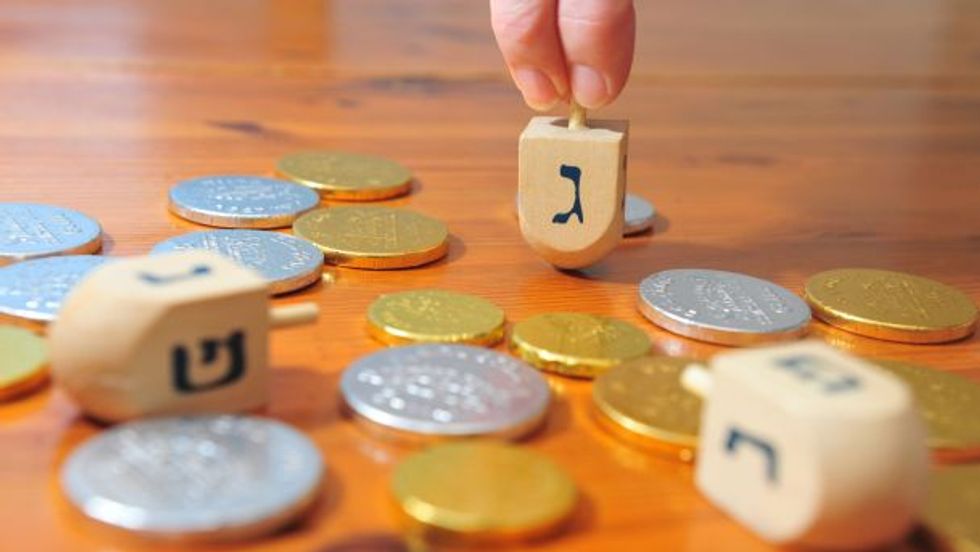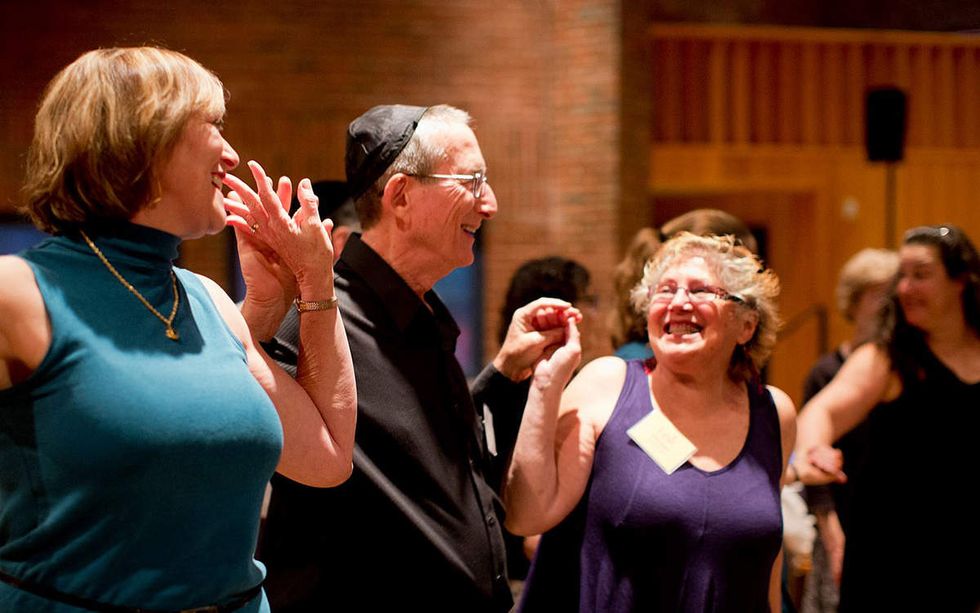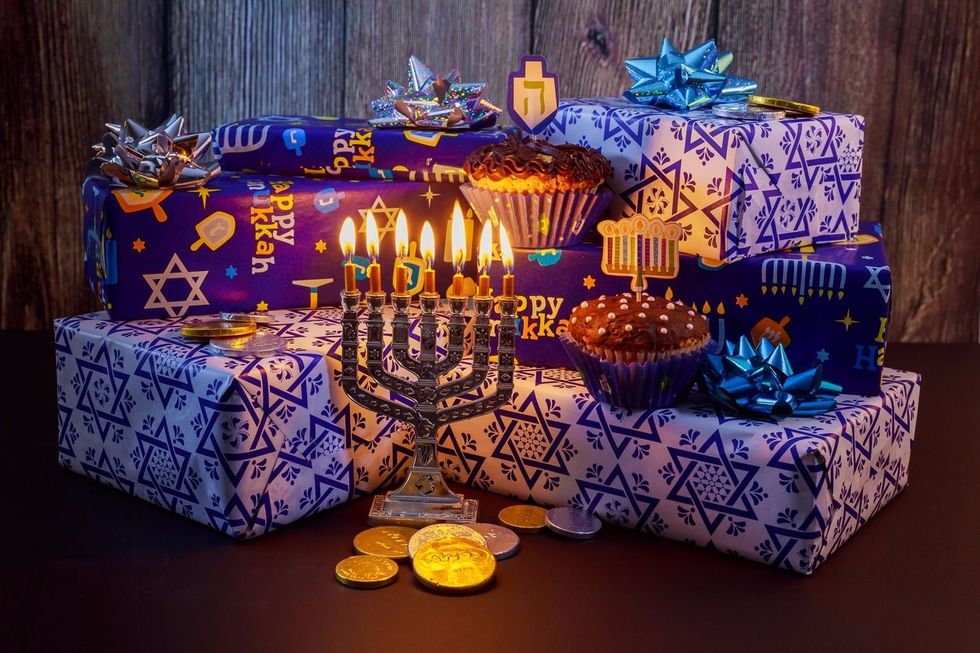Hanukkah, also known as Chanukah, the "Festival of Lights" or the "Feast of Rededication" is often regarded as a "Jewish Christmas". I mean, let us face it, all of the activities associated with Hanukkah, a holiday in the midwinter, marked by colorful and bright decorations, merry-making, praying, feasting on delicious foods, gift-giving pretty much screams "CHRISTMAS".
Many Jews have even incorporated many Christmas practices into Hanukkah, such as the tree - in that simply instead of Christmas decorations, they use Hanukkah and Jewish symbols and ornaments. In addition, Hanukkah has also reached mainstream western culture, in that in most winter festivity centers, such as in big cities, you'll see giant Menorahs being lit as much as Santa Clauses and etc.
It's no wonder why there is such a fuss over the "competition" between Hanukkah and Christmas.
However there are obvious differences between Hanukkah and Christmas. As in my Passover and Sukkot posts, let the record show that Jews don't really celebrate holi-days; but more so holi-weeks, and Hanukkah is no different. Like other Jewish feasts, Hanukkah floats, since the Hebrew calendar doesn't always coincide with the Gregorian calendar.
In addition, while Hanukkah does have a spiritual foundation to it, it isn't celebrating the "birth" of any Messiah, but more so the reconquest of the Temple of Jerusalem, in which the Jews were able to revive their traditions over the traditions imposed upon them by the Hellenized rulers of Judea. So there's also a "war victory" side to this, as it celebrates the Maccabean revolt, described in 1 and 2 Maccabees of the Bible in which Jewish militant warriors defeated the highly-favored forces of the Greek king Antiochius of Epiphanes. The name Maccabees is the name of the family that led the revolt, hence the term Maccabean. Here are some of the modern-day traditions of Hanukkah and the meanings behind 'em.
1. The Menorah
The Menorah, a candelabrum is perhaps one of the most famous symbols of Hanukkah, let alone Judaism. Its significance encompasses outside of Hanukkah, thousands of years back. Its significance was mainly for its use inside the tabernacle of Moses, those Menorahs had 7 lamps. In my Sukkot post, if you can recall, a "tabernacle" is a temporary dwelling that God had the Hebrews living in. The modern-day Hanukkah significance of the Menorah, which contains 9 lamps, stems from the legend that when there was only enough oil to burn for one day.
So what was this "oil" used for? At the time, we're talking ancient times, they didn't have electricity. Oil was used to burn lamps, and therefore, provide light and warmth. Oil is also a popular consecrating substance in MANY religious, and Judaism was no exception. So in order to "rededicate" or "consecrate" the temple to the Hebrew G-d....well you can guess, the victorious rebels needed oil, to which there was only enough to burn for one day. it burned for 8 days instead. The middle lamp isn't part of the 8-day correlation, which is why it is often lit first along with the first day candle or whenever.
2. Deep-Fried Foods
As we also come to know and love, Jewish festivals are often accompanied by a certain food theme. In the spring, Passover's main culinary theme is unleavened foods, Rosh Hashanah's is sweet foods and Hanukkah's main culinary theme is deep-fried foods. The deep-fried foods once-more, stem from the oil story. Many of the popular Hanukkah we come to know and love were of European influence, such as the potato latkes, which are fried potato pancakes. In Israel, there is a very popular doughnut called the sufghaniyot, a jelly or jam-filled doughnut. Brisket is also another popular food.
Chocolate coins known as gelts, a Yiddish word for "money", are also a popular part of Hanukkah (read below for games).
3. Activities and Games
Then, we have the famous dreidel game. Like many of the other Hannukah traditions, such as the latkes and the gelts (which is associated with this game), this activity is not of ancient Hebrew origin, but more of European origin. It is based off of the defunct teetotum, a spinning top that was a popular gambling game tool used across many European cultures.
Each side of the dreidel has a Hebrew character, נ (Nun), ג (Gimel), ה (Hei) or ש (Shin). It stands for this acronym "Nes Gadol Hayah Sham – "a great miracle happened there". It also coincides with Yiddish words, where "Nun" stands for the Yiddish word "nisht", Hei for "halb" or "half", Gimel for "gants" or "all" and Shin stands for "shtel ayn" or "put in".
Much like the game of monopoly, the items being gambled are traditionally gelts, or chocolate coins. As you can see, if you're familiar with German language, some of these words may be familiar, since Yiddish and German are both Germanic languages. The Yiddish word gelt is a cognate to the German word geld. Depending on which side of the dreidel is facing up after being spun by each player, the player either wins, keeps the current amount or loses. Each player must contribute one game unit (whatever it be, gelts or real coins) to the "pot" where all the "money" is collected, sorta like a bank.
Music is also a VERY essential component of holidays. Akin to our Christmas carols, those who observe Hanukkah also sing songs. Although while Christmas carols tend to be friendly to the languages of those singing it ("Feliz Navidad" for Spanish-speaking folks), most of the Hanukkah songs are either Yiddish or Hebrew. However, there ARE also popular Hanukkah songs for English-speakers, such as "Dreidel, Dreidel, Dreidel". I can also attest to that, as we ourselves actually sung that in our music class back in my elementary days. "Oh Chanukah" is also a popular one, an English version of the Yiddish "Oy Chanukah".
4. Gift-Giving
This tradition is actually fairly recent, and one can guess, it mostly influence from Christmas and western traditions. Traditionally, people observing Hanukkah are expected to give a small gift on each day, so that's 8 small gifts total, or 7 small gifts followed by 1 big gift, it can all vary. The only real "gift-giving" tradition of Hanukkah was the European Jewish tradition of giving gelts, chocolate coins (or even real money) to children. This tradition stemmed from people giving money to Jewish religious teachers for teaching their children.
In addition, other "fairly new" practices to Hannukah include the Hannukah bush, which is just a Christmas tree adorned with Hannukah ornaments instead of Christmas ones. Or, for Jews who celebrate both Hannukah and Christmas, it is adorned with both.
For Christians, well, if you read in John 10:22-23, "And it was at Jerusalem the feast of the dedication, and it was winter. And Jesus walked in the temple in Solomon's porch", it may have implied that Jesus himself celebrated Hanukkah!
As I explained in the Passover article, many Jewish holidays and traditions have slowly found themselves being practiced by Christians, who feel compelled to continue the practices that Jesus held in his lifetime, as he was a Jew himself.

